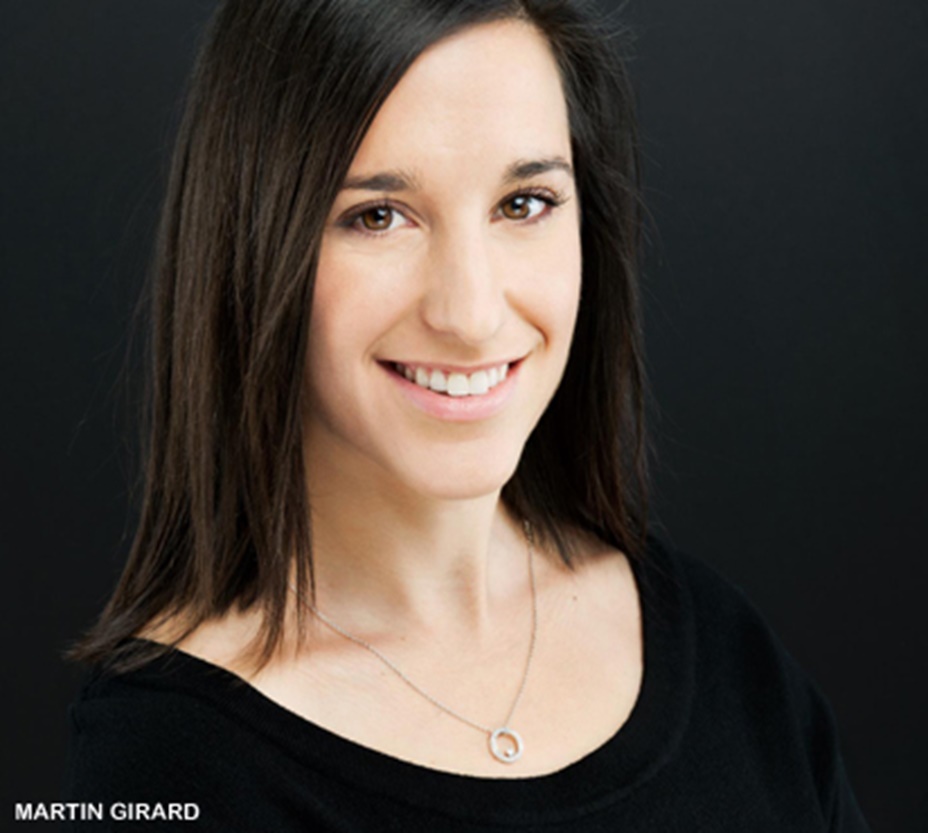MARIE-ÈVE MARLEAU is the program manager for athlete marketing at the Canadian Olympic Committee in Montreal. Before starting a career in athlete marketing, Marleau spent 10 years as a diver, representing Canada at the 2008 Olympic Games in Beijing, where she finished seventh in the 10m platform. Marleau worked for public relations firm Marie-Annick L’Allier for two and a half years before joining the COC in April '13. She spoke to SBD Global about her background as an Olympian, her role at the COC and the state of athlete sponsorship and visibility in Canada.
On utilizing her Olympic background at the COC ...
Marie-Ève Marleau: I’m surrounded by passionate people within the COC and with our athletes as well. We all have the same common goal of succeeding in whatever we do. I’m very happy that I found a place where I feel like I’m on the Canadian Olympic team again. I retired six years ago then I finished my degree and worked for a bank for a little bit before getting a job with a PR company. I always felt like there was something missing, like a bigger team or goal. When I started with the COC I felt like I was at the right place where I could bring my expertise as an Olympian and also where I could use my bachelor in marketing. ... I think when [the COC] came to get me their objective was to have an Olympian on board to make that connection with the athletes and also to bridge with the sponsors, which is sometimes not well-understood on either side.
On her role at the COC ...
Marleau: My job is basically to make the athletes understand what the partners want and try to make the partners understand what the athletes want, need and can offer. I’m the liaison between our partners and our athletes. Most of our account managers within the COC are internal. Whenever we deal with a partner, they are on board for either four years or eight years and have a bank of appearances. I manage these appearances with different partners. Let’s say they want an athlete to speak at an event in Vancouver. I’m kind of the expert in knowing which athlete would fit what topic. We work with summer and winter athletes, active and retired. To give you an example, from January 2013 until after the Sochi Games -- March 2014 -- we’ve booked 1,227 appearances. Almost half of these events are from our partners. We also do community events like school visits, hospital visits, food drives, pride parades, or any other parades. We also have events with our foundation, which has been doing a lot of work in the past two years building up that donor type of influence. Their goal is also to help the next generation of athletes -- not only Olympians, but the up-and-comers, which is pretty much where we lose great potential if we don’t have the support around them. So that’s part of our mission as well.
On the challenges Olympic athletes face in securing sponsorships ...
Marleau: Because the Olympic Games are only every two years partners usually want to associate with an athlete when they’re at their peak. We’re still in the amateur world of athletes. We’re not a pro team. These athletes don’t belong to one team -- you don’t buy these athletes like a professional team would. So the challenge is finding those opportunities where a sponsor can actually support [an athlete] in a way where [the athlete] benefits from it, in both a financial and personal level. Athlete integration is how we try to make those great connections.
On the IOC’s Rule 40 ...
Marleau: I’m not sure that will
change. These [sponsors] pay big bucks to be [at the Olympics]. I think we have to adapt
our strategy around that. It goes back to educating our sponsors into
not focusing all of their strategies into the two weeks of Olympic
Games. There are world championships and world cups -- so many other
events where they can focus and get that visibility, and it’s a little
bit looser. I think that’s where we need to focus on making strategies.
Everybody wants the Olympic rings attached to them. I don’t see any
future changes on that rule.
On Olympic athlete visibility in Canada ...
Marleau: Since 2010, where we had the Games at home, it has helped a lot. But still, our CEO [Chris Overholt] just released an article about the coverage of amateur sport in Canada, which is a big issue. There’s not enough. This is key for our athletes in getting to know them and also in getting the right companies to go behind them. It’s a win-win in the end. I think that’s where we should start. There’s been a lot of improvement on the digital and social media side, but it’s not enough in terms of media coverage. One of the biggest issues is to educate the public on these Olympic athletes and then eventually the sponsorships will come in. Back when I was a diver, sponsorships were all about getting the financial support. Right now I think there is a switch to trying to educate these companies that they can gain a lot from that association with the athlete, and I’m not talking money-wise. There are values that they can share and bring back to that company, before and after the Games.
Hangin' With runs each Friday in SBD Global.




